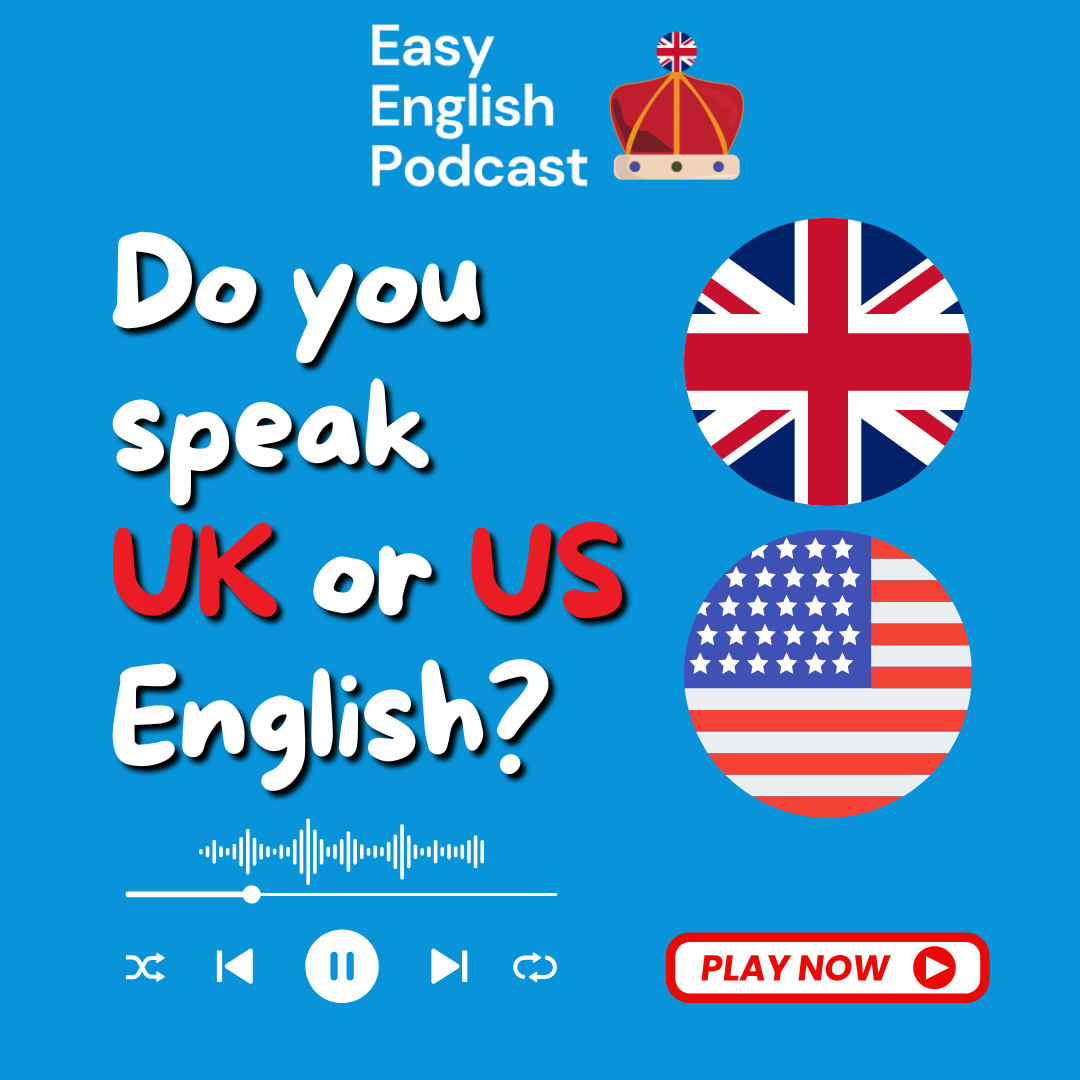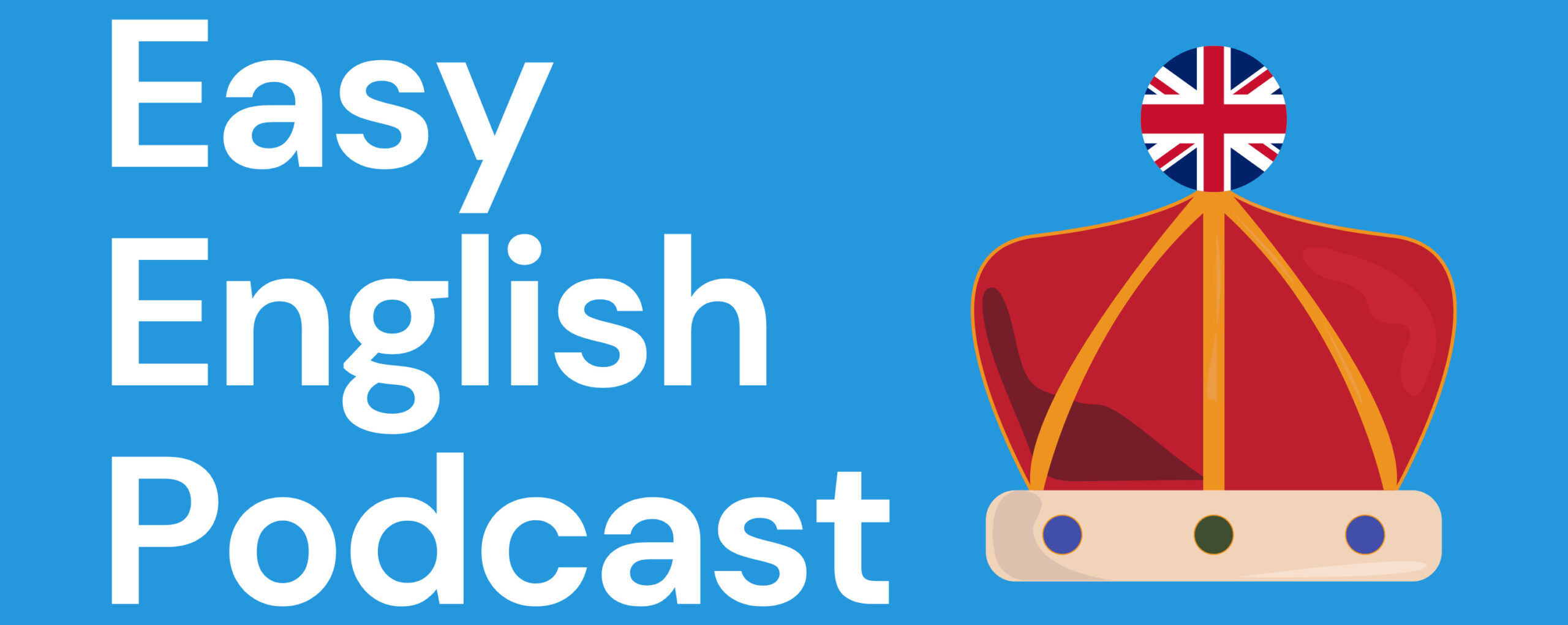
Do You Speak American or British English?
Hey everyone, I’m Oliver, and welcome back to another episode of the Easy English Podcast. Today, we are going to be looking at a fun and exciting topic: Do you speak American or British English?
English is spoken in so many different ways, and there are two main varieties: British English and American English. We’re going to learn about the differences, what is important to know, and also some examples. Plus, there’s a little test to find out if you speak American or British English. So, stay tuned and keep listening until the end to find out which one you speak and which one you are learning!
The Basics
British English and American English are the same language, so for most cases, the words, pronunciation, spelling, grammar, and vocabulary are pretty much the same. However, there are some key differences in each of these areas:
- Vocabulary:
I hear different words for the same things in different English-speaking countries. For example, in the US, they would say apartment, whereas in the UK, we say flat. Similarly, in the UK, we say biscuit (something you eat with a cup of tea), but in America, they say cookie. - Spelling:
In the UK, we write colour and favourite with a “u” (e.g., COLOUR and FAVOURITE). In the US, these words are written as color and favorite (without the “u”). - Pronunciation:
British English tends to pronounce the “r” sound in words less strongly than American English. For example, in the south of England, people might say car with a softer “r.” In America, the word is pronounced more like carrr.In the north of England, accents tend to mix styles, with harder “r” sounds and slightly different vocabulary. So, accents and pronunciation can vary even within the UK and US. - Grammar:
Americans often use the past simple tense, saying I ate. British speakers, however, frequently use the present perfect tense, saying I have eaten.
Which One Should You Learn?
You might be wondering: Which version of English should I learn—American or British?
It all depends on your goals:
- If you plan to study or work in the UK, focus on British English.
- If you’re moving to the US or working with American companies, American English will be more useful.
Honestly, most English speakers understand both versions perfectly. Mixing them is totally fine, and people do it all the time, even within the UK and the US. The most important thing is to communicate clearly.
Vocabulary Test
Let’s do a little test! I’ll say some words, and you can decide which version of English you know or use:
- Fuel for your car:
- UK: petrol or diesel
- US: gas
- Time off work for a trip:
- UK: holiday
- US: vacation
- Path beside the road for walking:
- UK: pavement or footpath
- US: sidewalk
- Household waste:
- UK: rubbish
- US: garbage or trash
How did you do? Do you use more American or British vocabulary? Let me know in the comments!
Final Thoughts
One final thing to remember: it’s perfectly OK to mix British and American English. Most people won’t even notice as long as you speak clearly. The important thing is to communicate well, whether you have an American accent, a British accent, or a mix of both.
Thank you for listening to today’s episode! If you enjoyed it, like the video, comment, or share it. Let me know: Do you speak American or British English? Or maybe you mix them both like me?
Have an amazing day, and I’ll see you in the next episode. Goodbye!
Glossary of Difficult Words
- Pronunciation: The way a word is spoken.
- Vocabulary: The collection of words used in a language.
- Pedestrians: People who are walking, especially on a street or path.
- Inflection: Changes in the form of a word or sound to convey a different meaning.
- Accent: A way of pronouncing words that indicates where a person is from.

